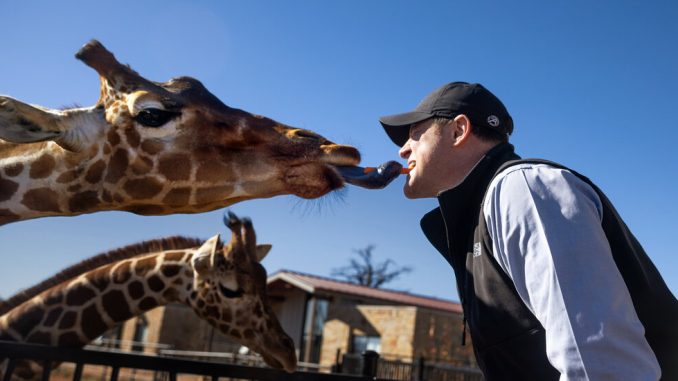
Driving west out of Austin toward Fredericksburg, the road narrows to one-lane blacktop, and the edges of the city’s suburbs gradually give way to a different kind of Texas, one of ranches, old wooden churches, farm stands and wineries.
This is the Texas Hill Country, a 31,000-square-mile area of rocky karst hills considered the threshold between the Southeast and the Southwest. As the center of the state’s wine tourism, and with a more temperate climate than the nearby cities, the region has lured visitors for generations, whether for the hiking or the tempranillo wine or to just get away from it all.
Figuring out where exactly the Texas Hill Country begins and ends is a task best left to local songwriting legends like Willie Nelson and Lucinda Williams, but over a recent weekend, with Ms. Williams’s gravelly twang on the car speaker, I cruised the region’s back roads to see what was new, particularly in terms of accommodations.
To meet increasing demand over the past 30 years, megaresorts, like the Hyatt Regency Hill Country Resort and Spa, opened and now dominate the area’s hotel market. These properties, along with La Cantera Resort & Spa, JW Marriott San Antonio Hill Country, Hilton San Antonio Hill Country and Hyatt Regency Lost Pines, are sprawling, multiple-pool complexes, some with children’s zones and lazy rivers, and start at around $200 for weeknights and $450 for weekends.
But in recent years, a different kind of Hill Country hotel has emerged. I found a range of surprising options, from an opulent wellness resort where you can learn country line dancing to a boutique hotel with grazing giraffes and rhinos.
Located 40 minutes from downtown Austin in Dripping Springs, Camp Lucy serves as a popular place for weddings, with statuesque oaks framing bridal photos. But in 2014, the owners also started adding hotel rooms, and in 2020, even better ones — “treetop” rooms, with balconies overlooking the hills. The on-site restaurant, Tillie’s, has elaborate tile work and teal leather bar seats, and the pool is sizable with comfortable lounge spaces. But it’s the country details that make a memorable visit: A communal fire pit is a fun outdoor space to while away the evening, and the front desk provides kibble you can hand-feed to the alpacas on the property. (Nightly rates around $300.)
Farther west, on the outskirts of the town of Fredericksburg, I dropped by Longneck Manor, a small hotel that opened in 2021 with a unique offering: African wildlife roaming the grounds outside your room. Developed by the former director of the Houston Zoo, the hotel offers tours to see the wildlife, which includes giraffes and white rhinos, and a handful of rooms to stay overnight (nightly rates starting at $1,000). The Giraffe Suite which went viral on TikTok thanks to the large glass window in the room that giraffes come right up to, sleeps four and starts at $1,600 per night. It is booked up months ahead.
Also in Fredericksburg: Contigo Ranch, which opened in 2017 with farmhouse cottages and cabins showcasing minimalist style. The property is a family-owned cattle ranch, and an array of wildlife like whitetail deer, jack rabbits and armadillos can also be seen. The cottages range in size and the number of people who can fit, and start at around $230 a night.
A clutch of glamping options have also sprung up across the region. In Fredericksburg, Firefly Resort offers glamping in the form of an R.V. (and tiny-home) resort that opened this year and centers on a clubhouse and resort-style pool. Fifteen minutes away in the town of Wimberley, Collective Retreats expanded on its portfolio with a new Hill Country site. Sturdy tents feature a king-size bed and a patio with Adirondack chairs and start at around $250 a night. An hour south of Austin, tents are also set out at Wahwahtaysee Resort, near the banks of the emerald San Marcos River. The safari tents start at around $350 and often include a living room.
Circling back toward Austin, I also visited Miraval Austin Resort and Spa, which opened in 2019 as a sister property to the popular Miraval Tucson. Set on a bluff on the outskirts of Austin, with Lake Travis in the distance, the adults-only, Hyatt-owned hotel caters to those in need of serious rejuvenation. A representative of the resort listed for me some of the common motivations for guests to come to Miraval, including career change, divorce, a death in the family and detoxing. But people also come for a spa retreat experience, or to celebrate birthdays and other life moments.
I bought a day pass for $560, which was the “budget” way to experience Miraval, compared with the $1,100-a-night lodging packages. Soon I had an itinerary planned for me that included classes on sound therapy, line dancing and intense breathing exercises in the “yoga barn.” Miraval also features an infinity pool that looks out over the Hill Country, a kind of white whale for central-Texas resort seekers.
Plan ahead: The word is out among Texans and those further afield about these charming new spots, so it’s wise to book early (and don’t underestimate the popularity of midweek days — the resorts draw people during off-peak times as well). Additionally, if you want to hop among the destinations, you can count on spending several hours in the car on country roads, as the resorts are spaced far apart in true Texas style. But driving those roads is an essential part of the Hill Country experience, cruising past ranches and farms, letting the Texas troubadours on the car radio show the way.
Follow New York Times Travel on Instagram and sign up for our weekly Travel Dispatch newsletter to get expert tips on traveling smarter and inspiration for your next vacation. Dreaming up a future getaway or just armchair traveling? Check out our 52 Places to Go in 2023.


Be the first to comment